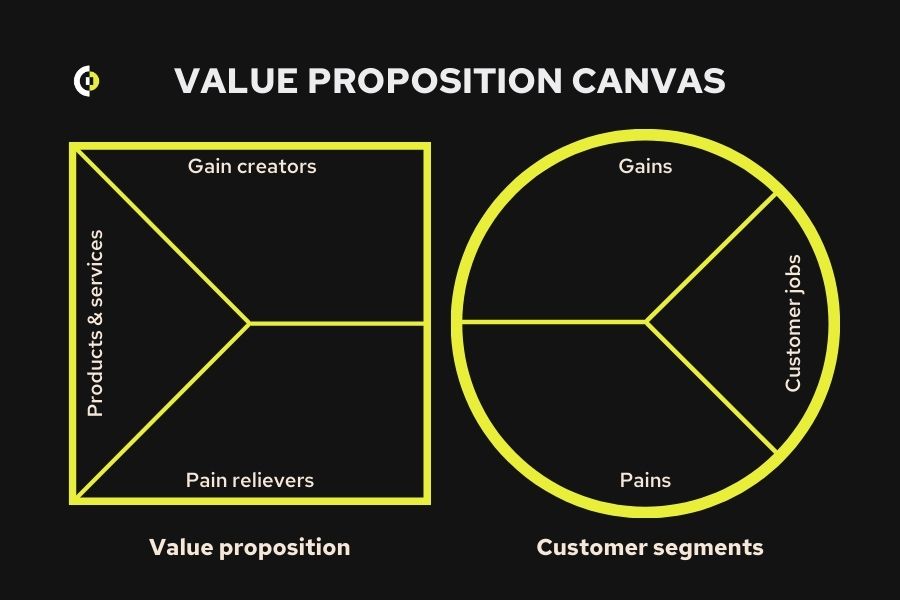In the current fiercely competitive business environment, where businesses are vying for success and market share, it has become crucial to implement digital technologies to remain competitive, boost productivity, and increase profit margins. Digitalization, digitization, and digital transformation have revolutionized the business world, offering the capacity to create significant shifts in how organizations function.
This blog will mainly explore how digitalization can benefit your business in various ways. From upgrading outdated processes and speeding up workflows to enhancing agility and improving profitability, we will delve into digitalization’s advantages to organizations in multiple sectors. So, let’s explore the transformative power of digitalization and learn how it can help your business remain competitive and thrive in the current fast-paced business environment.
Digitization, Digitalization, And Digital Transformation – how do they differ?
In today’s technology-driven world, businesses must adopt a digital culture to survive and thrive. Companies can increase productivity and reduce costs by utilizing digital technologies to create more efficient workflows and processes. It’s essential to differentiate between digitization, digitalization, and digital transformation and ensure you use the right processes for the intended outcomes.
Let’s first clarify the confusion between these three terms, often incorrectly used interchangeably, before we further explore how digitalization can benefit your business.
Digitization
According to Gartner’s IT Glossary: “Digitization is the process of changing from analog to digital form, also known as digital enablement.” Digitization is converting analog information into digital form, such as scanning a picture, uploading paper documents, or converting music from a VHS tape to LP or video. The data and information remain the same; only the accessibility and storage change. This foundational process enables businesses to make data more consumable and essential for providing value.
Digitalization
According to the Gartner Glossary: “Digitalization is the use of digital technologies to change a business model and provide new revenue and value-producing opportunities; it is the process of moving to a digital business.” In the last decade, new digital technologies, such as cloud computing, artificial intelligence, and the Internet of Things, have accelerated digitalization. Digitalization uses technologies to improve existing business processes and increase productivity and efficiency. This process utilizes digitized data to create more streamlined workflows and software-driven processes.
Digital transformation
Digital transformation is distinct from digitalization, as it involves a series of digitalization projects. They range from automating processes to retraining workers, resulting in broader changes and new working methods. While related to digitization and digitalization, digital transformation is the broadest term for completely rethinking and reimagining business processes and models.
Digital transformation requires an organization to deal better with change overall. Companies should make change a core competency as the enterprise becomes customer-driven end-to-end. Simply put, digitization and digitalization are about technology, but digital transformation is about the customer.
Companies must embrace digital transformation to optimize their systems and processes. That way, they will ensure their systems and processes are interoperable and flexible enough to provide robust business intelligence for future success. Not adopting innovative technologies may cause businesses to fall behind their competitors.
10 benefits of digitalization for your businesses
Digitalization offers a range of benefits that can help businesses improve their operations and stay competitive in today’s fast-paced business world. Here are ten advantages of digitalization that companies can enjoy.
#1 Streamlined processes
Every business always looks for ways to improve efficiency, and digitalization can help streamline processes. Automating processes and related business rules can help organizations achieve greater transparency and fairness, reducing the time, effort, and cost of completing tasks.
#2 Improved efficiency and productivity
Automating monotonous duties gives workers more time and energy to dedicate to creative and inventive projects, leading to increased productivity. Business process automation systems can perform tasks faster and with fewer errors, enabling employees to use their time at work better.
#3 Cost savings
Digitalization reduces operational costs by allowing the most efficient and cost-effective use of core resources. Manual tasks and processes are slower than automated activities, leading to wasted resources, but digitalization has the potential to save up to 90% on operational expenses.
#4 Increased transparency
By digitally monitoring processes, critical metrics can be gathered and reported on to provide essential information. Transparency in business processes is vital for long-term success, and well-documented processes and transparent workflows boost an organization’s visibility.
#5 Enhanced customer experience
Digitalization ensures that each task is executed consistently, delivering reliable and high-quality results. For instance, businesses can maintain the same level of customer support by automating follow-up processes. With the certainty of quality and consistency and the advantages of time and efficiency, you can create superior products with additional features while keeping manufacturing time and expenses unchanged or even reduced.
#6 Reliability
Automated processes are consistent and reliable, providing a competitive edge to businesses by running operations and providing reliable procedures to clients. Workflow automation’s dependability ensures that critical corporate governance operations are carried out 100% of the time and in compliance with the law.
#7 Reduced human error
Automation decreases the likelihood of human error, leading to more consistent and reliable processes. Humans are more error-prone than computers when it comes to performing tasks. Computers can operate continuously without getting tired. Therefore, it’s better to delegate tasks we don’t want to perform to computers and focus on more challenging and creative tasks.
#8 Enhanced agility
To stay competitive, businesses must be agile enough to respond to market shifts, upheavals, and new opportunities. When business processes are automated, it allows organizations to modify and adapt to changes at a relatively fast pace.
#9 Improved employee morale
When you task the workers with repetitive manual duties, it impairs their capacity to learn, grow, and progress in their careers. Digitalization benefits employees by automating these monotonous duties, freeing them to participate in more meaningful projects and boosting their job satisfaction.
#10 Better decision making
Digitalization enables information management, transforming information into knowledge and leading to better decision-making. With greater access to data and analytics, businesses can make more informed decisions that positively impact their operations.
The Importance of BPM Tools for Digitalization
Business process automation plays a crucial role in the digitalization journey. Organizations can use BPM tools to initiate their digitalization journey and streamline their operations. Businesses can no longer afford to ignore manual processing delays, human errors, and inefficient business processes. Such inefficiencies cost companies thousands of dollars annually, making digitalization a top priority for most organizations. That’s where Sipod’s BPM platform comes in handy.
How does Sipod’s BPM platform benefit your business digitalization?
Sipod’s BPM platform provides a comprehensive solution to businesses looking to automate their processes. It allows organizations to make informed decisions by utilizing the Camunda tool and the DMN standards. By leveraging this platform, companies can enjoy streamlined operations, reduced costs, and increased productivity.
Together with your analysts, Sipod will help you with your digitalization journey and business processes by:
- Identifying and automating your most complex mission-critical business processes.
- Modeling with BPMN 2.0 and DMN standards.
- Providing real-time visibility into process performance, bottlenecks, and opportunities for improvement.
- Improving collaboration and communication across departments and stakeholders.
- Providing a flexible platform that allows for quick and easy updates and modifications.
- Providing a secure and scalable platform to support growth and expansion.
Sipod’s BPM platform plays a vital role in helping companies optimize their processes and remain competitive in the market. With its user-friendly interface, real-time monitoring capabilities, and integration capabilities, the platform is a comprehensive solution for organizations looking to embrace digitalization.
What are some challenges of digitalization for businesses?
Embracing digitalization allows for implementing new digital processes and tools, potentially reinstating how you run the business. However, challenges arise throughout the entire digitalization process. As a business leader, it is important that you understand that digital transformation challenges are not only limited to technological or technical barriers but can also include people-oriented issues, organizational structures, and other non-technical factors.
Lack of digital and IT skills
As companies embrace digitization, almost every job will demand some level of digital competency. Digital competency extends to non-technical roles, which will require fundamental technology knowledge. This contributes to a shortage of the extensive digital skills needed for successful digital transformation.
Competencies such as analytics, cybersecurity, cloud, enterprise architecture, and digital experience are critical to digitalization. However, putting together such a team of professionals with expertise in these critical competencies can be daunting. Businesses that lack IT professionals can overcome this difficulty by outsourcing the work to Sipod’s external consultants and digitalization experts, who can help with the implementation and migration process.
Data privacy and security concerns
Many companies in industries that handle sensitive data are concerned about privacy and cybersecurity, and this concern is valid. Digitalization efforts typically involve moving away from on-premise solutions and integrating all company data into a centralized system in the cloud. This increases the risk of cyberattacks targeting system vulnerabilities, poorly configured setups, and unaware users. It’s essential to have a proactive plan to address these threats, such as bringing in a cybersecurity expert to identify weaknesses in your defense and provide employee training.
Budget constraints
Businesses that experienced financial losses during the pandemic may have encountered challenges in their digitalization efforts due to limited financial resources. Implementing new digital solutions requires significant investments, and some businesses may view technology expenses as operational costs rather than strategic investments.
However, digitalization can provide substantial cost and time savings by streamlining processes and reducing manual intervention. Identifying long-term goals and expected return on investment is essential to determine appropriate spending. ROI is undoubtedly one of the main KPIs of every digital transformation. However, we need to define success indicators for every digitalization process separately. Sipod can help you define and measure the KPIs depending on which areas of your business digitalization transforms and which challenges it responds to.
In summary
By embracing digitalization, businesses can make data more consumable, provide essential business value, and optimize their systems and processes. Digitalization is necessary for companies to remain competitive and thrive in today’s rapidly changing business landscape with high levels of competition, constant technological advancements, and evolving customer preferences. Sipod can assist you in your digitalization journey, streamline your business operations, increase productivity, reduce costs, and enhance your business’s overall performance. Contact us today to find out more!
Tags:





